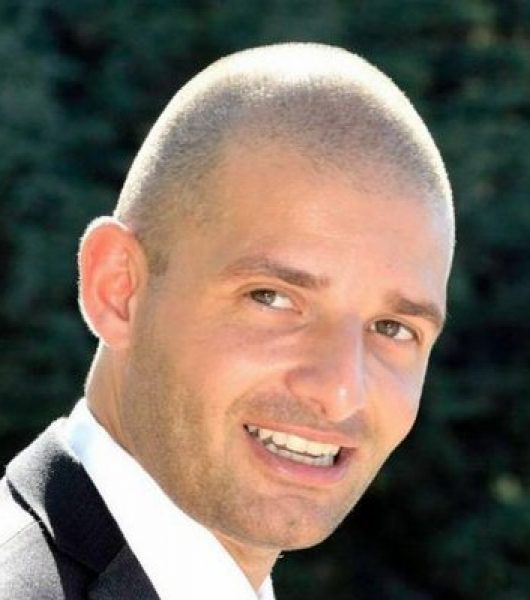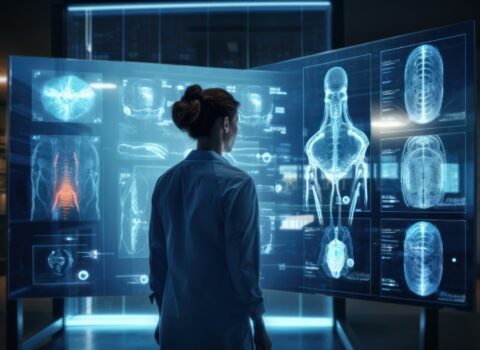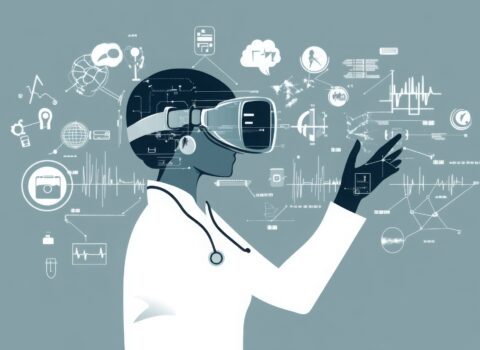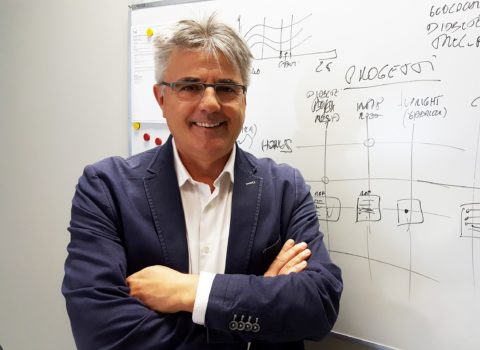
The power of artificial intelligence in the service of health
Trento hosted the 1st AIxIA Summer School on AI for Healthcare from 7 to 11 July 2025: an outstanding opportunity for PhD students, scholars, and practitioners to further develop their skills and deepen their understanding of the field’s research areas.
Designed as an interdisciplinary event, the school brings together physicians, clinicians, researchers, computer scientists, data scientists, AI engineers, and more. Instead of relying solely on traditional face-to-face lectures throughout the week, the program fosters a discussion-based environment where participants explored the challenges they will face in the coming years, and examined the risks, tools, and key requirements identified by domain experts. Featuring experts from academia, industry, and healthcare, the school creates a collaborative setting that promises significant benefits for all involved.
Three main topics were covered:
For each topic, both discussion-based and hands-on sessions were organized. In addition, a dedicated session gave the students the opportunity to present their ongoing research. The range of topics had been carefully designed to instill an understanding of multi-modality that students can apply to their own research contexts by the end of the school.
The full Program Overview is available here: five intense days in which clinicians and AI experts learn to collaborate (not to swap jobs) thanks to debates, hands-on workshops and co-design sessions under the direction of Francesco Calimeri (UNICAL), Fabio Stella (UNIMIB) and Mauro Dragoni, who leads the Intelligent Digital Agents (IDA) research unit of the FBK Center for Digital Health and Wellbeing. IDA focuses on the study and development of flexible technologies and prototypes of digital assistants in the sector of prevention and mental well-being. The main skills of the unit focus on modeling multi-modal knowledge and neuro-symbolic reasoning, on the refinement and integration of Large Language Models within digital assistants, and on ethical AI.
In his presentation, he focused and discussed the most important challenges and opportunities regarding Natural Language Processing in Healthcare, splitting his analysis of the ecosystem in three parts:
- Information and knowledge management
- Human Computer Interaction
- Data Augmentation
After having defined what Trustworthy AI and Human Autonomy are, he showed how LLMs affect human autonomy. During a Q&A session that engaged the participants, he also explained why the conversational topic is trickier than what we could expect and left the group a bunch of open challenges to be assessed by the group during the hands-on sessions:
- To design a conversational solution fulfilling the Trustworthy AI requirements and implementing a flexible methodology making it easily adaptable to different scenarios;
- To enhance the literacy about human autonomy for the design of next generation conversational solutions;
- To train experts in detecting human autonomy violations within AI solutions.
“With this summer school – commented Dragoni (FBK) – we experimented with a new methodology to create a convergence point between AI scientists and clinicians. Rather than overwhelming students with too many concepts, we selected a focused set of topics and aligned all the experts around the related challenges to lay the groundwork for discussion, identify key needs, and shape potential solutions.”
“Physicians, clinicians, computer scientists, data scientists, and other experts – added Calimeri – are in the same room to understand each other’s languages, needs, and constraints: not to swap professions, but to build a shared vocabulary and establish best practices that turn technological insight into reliable, sustainable solutions for medicine and health.”
Some of the thought-provoking topics discussed by this temporary community were:
- From Pixels to Pathology: What Medical Images Really Represent;
- Building a pre-validated conversational agent for Digital Health.
- The Data Dilemma: From Hospital Systems to AI Pipelines;
- LLMs for mental health support;
“This summer school – highlighted Prof. Stella – offers a tasty and innovative recipe: so many different disciplinary perspectives joining forces to tackle the challenging problems of diagnosis and clinical decision-making. In a vibrant setting, participants attend expert lectures, collaborate, discuss and challenge each other. In summary, these ingredients are cooked together to form a new community of practice that fosters mutual understanding and drives progress in personalized patient care.”
The Summer School, hosted at the Istituto Pavoniano Artigianelli in Trento, which regularly collaborates with FBK, is part of the AI-HCare Group‘s initiatives, a working group of the Italian Association for Artificial Intelligence (AIxIA) whose main goal is to promote all kinds of activities in the field of AI applied to healthcare, and foster collaborations among research groups, associations, institutions, industrial players and various stakeholders, with a special focus on the Italian ecosystem.





